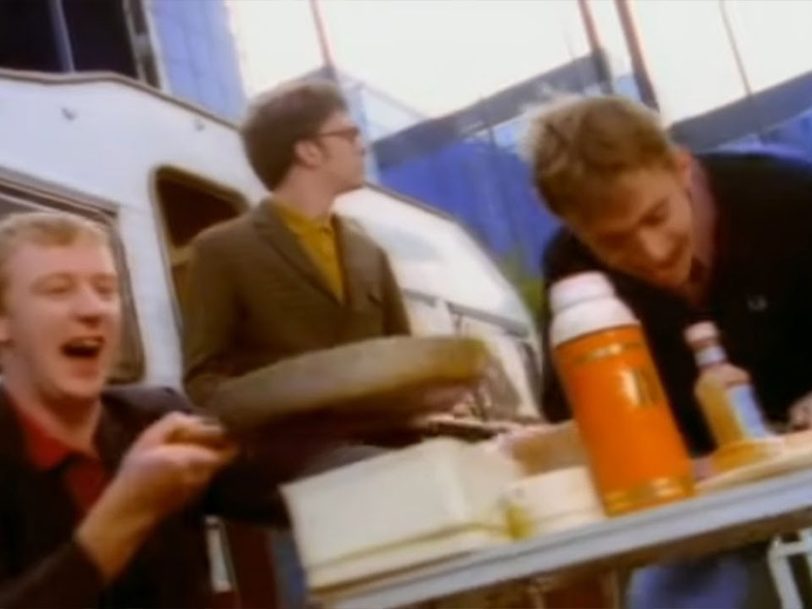The backstory: “The effect it had on Damon made him defiantly British”
Blur had released their debut album, Leisure, in the summer of 1991, but dark days descended when promotional duties forced them to undergo a thankless US tour. “So much of our culture is sort of American culture now. And I think it’s important to make a connection,” Albarn said at the time. In reality, however, the band found themselves schlepping around clubs, playing to audiences who were in thrall to grunge music and who couldn’t relate to Blur’s art-rock-leaning indie music. Feeling homesick and falling out with each other, the group began to cast mournful glances across the Atlantic, back towards home and the momentum they had left behind.
“We were getting more and more depressed doing this pointless tour and seeing our career in the UK going down the toilet, really,” drummer Dave Rowntree said in the Blur documentary No Distance Left To Run. “While we were in the States, the music focus had shifted completely, and we were just no longer relevant.”
Never shy of a challenge, Albarn realised Blur now had the chance to define themselves against what they were not. If grunge was characterised by abrasive guitars and angsty lyrics, Blur would present something different: something stylised; something that looked outwards instead of inwards; something that would celebrate where the band had come from. “I think the effect it had on Damon made him defiantly British,” bassist Alex James later said of the group’s first taste of North America. “It made us think about who we were.”
Speaking to music critic John Harris, for his history of Britpop, The Last Party, Mike Smith, the A&R exec who’d signed Blur to their first label, Food Records, elaborated: “It was, ‘Hang on, we have such a deep, rich musical tradition in this country, we’ve got something that goes back to the Victorian period.’ He wanted to bring all that into what Blur did, and combine it with the music of the 60s and come up with an articulate response to what had come from America.”
The writing: “Sunday Sunday is a very Mike Leigh-influenced song”
As Blur’s ill-fated US tour took them from the East Coast to the West Coast and back down through the South, Albarn began to write a new clutch of songs that would do away with the dance-rock crossover sound of their breakthrough single, There’s No Other Way, and instead bring a history of humour-laced social commentary bang up to date for the 90s. Of the new statements of intent that would make it on the Modern Life Is Rubbish album, including For Tomorrow, Blue Jeans and Chemical World, Sunday Sunday was written on an actual Sunday, as Albarn looked out from a Minneapolis hotel window at a shopping mall buzzing with activity. A far cry from anything he’d experienced at home, where corner shops and high streets were crucial parts of a town’s geography, and Sunday trading hours were restricted, the rampant consumerism led Albarn to think of all the things Brits did on their seventh day – read the newspaper, take a stroll through the park, enjoy family time over a Sunday roast – and consider if they still had a place in the world at the end of the 20th century.
Writing in his memoir, Verse, Chorus, Monster!, guitarist Graham Coxon also noted the influence of the kitchen-sink dramas of British filmmaker Mike Leigh on the song. “Sunday Sunday… is a very Leigh-influenced song,” he wrote. “Leigh’s films frequently showed characters struggling while doing everything they could to forge an identity and make a difference within their community.” Highlighting Leigh’s 1983 film, Meantime, as a particular reference point, Coxon explained: “The downtrodden, working-class Pollock family and the suburban interior and exterior landscapes accurately reflected the small-town England that all of us experienced while growing up… For us, this was comfortable, even safe territory.”




